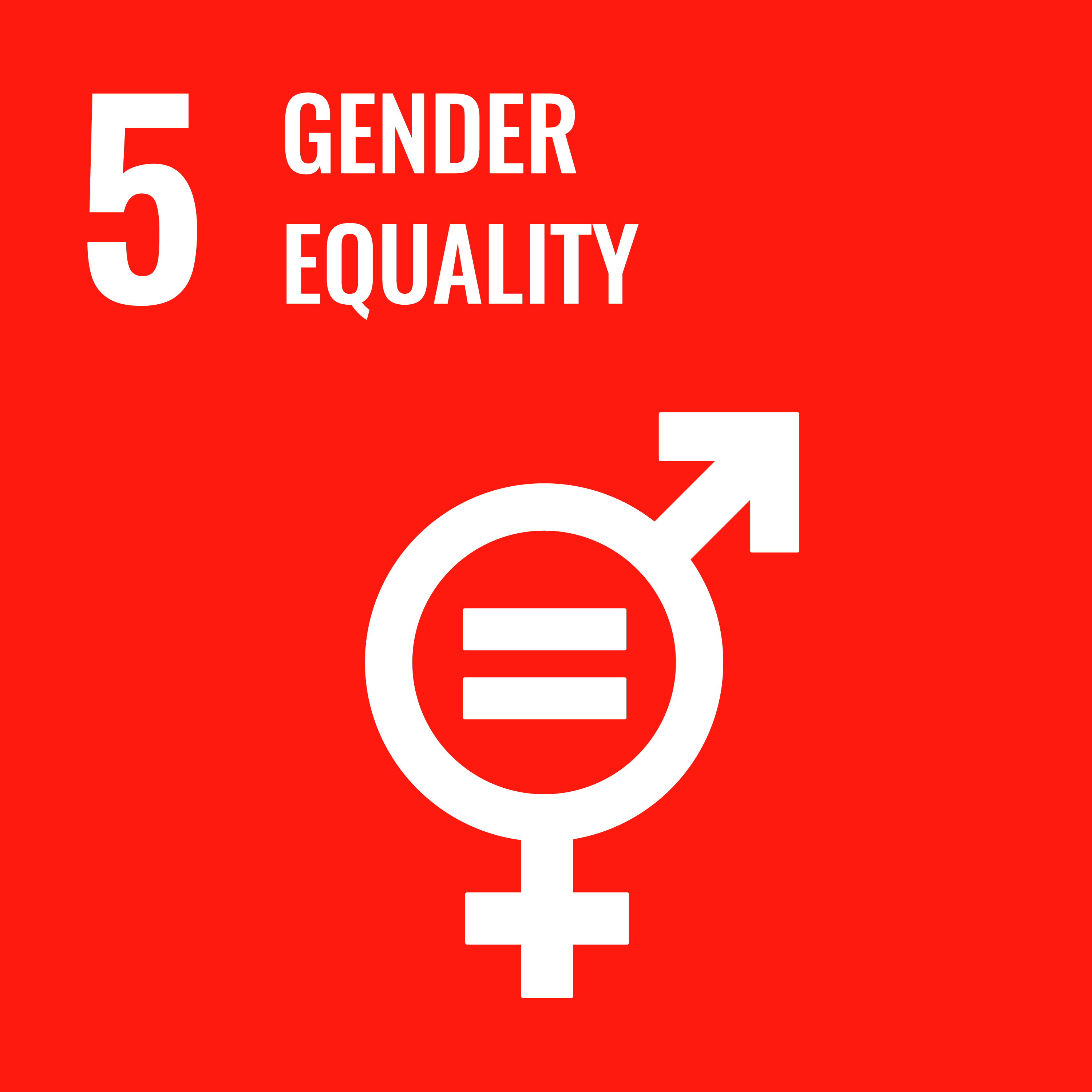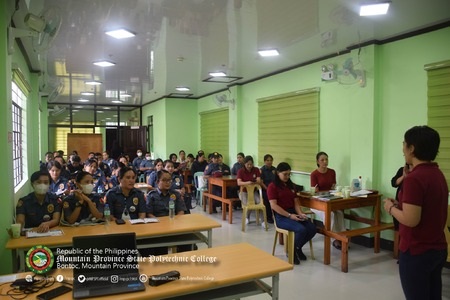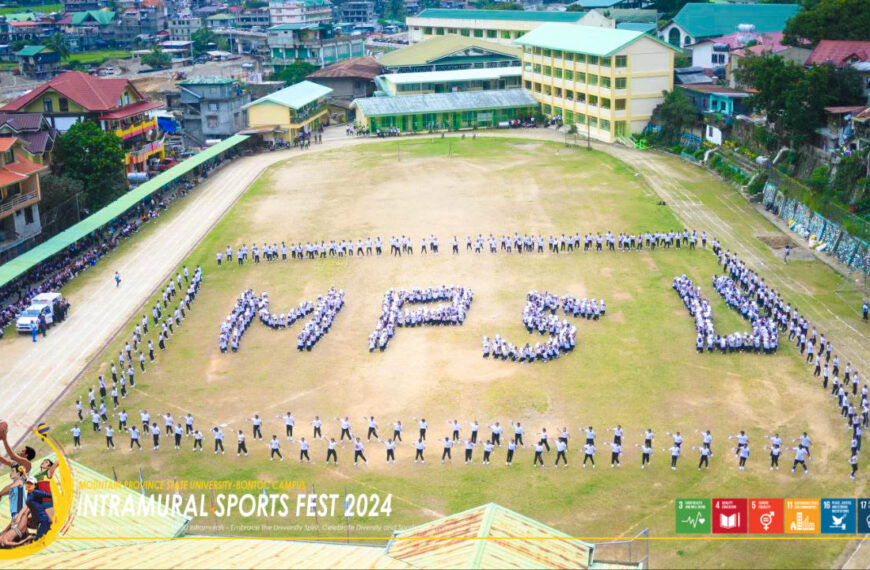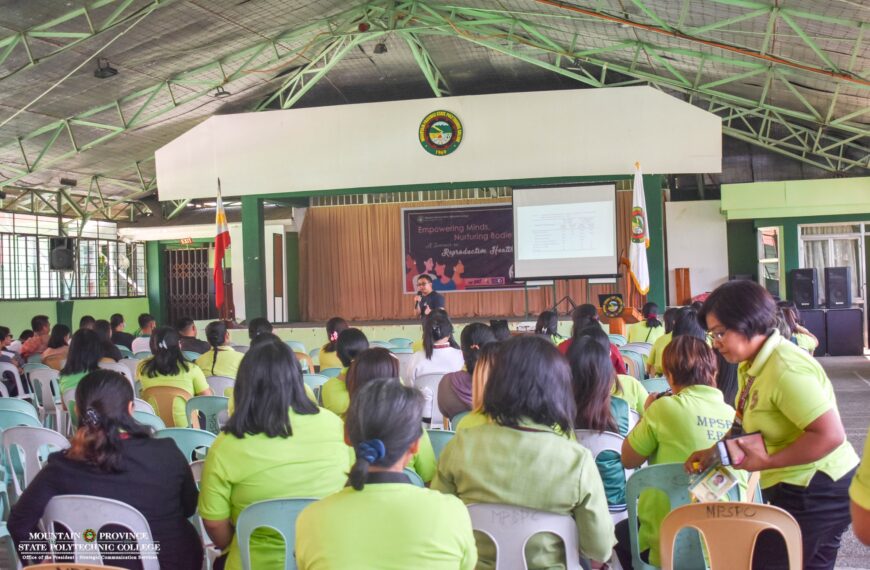As part of the 18-Day Campaign to End Violence Against Women, the Gender and Development Office of the Mountain Province State Polytechnic College pursued the seminar on Gender Neutral Language for the PNP personnel led by Police Major Faith Igualdo Ayan, Chief of the Women and Children Protection Desk and PLT Bernardo Kilangan Wong, Chief of the Provincial Investigation, Detection and Management Unit and which was conducted at the Student Center, SDSO Building, MPSPC.
College President Edgar G. Cue, represented by EA Shaine Macliing, delivered the remarks welcoming the guests on the “conversation on gender neutral and inclusive communication” and thanked Dr. Fagsao and Dr. Pangket for sharing their expertise on gender-responsive communication.
“The end of the 18-Day campaign does not mean the cessation of our ongoing efforts to end violence against women and girls, rather, we move forward with a determination to enrich our gender transformative actions for a community free from VAW or gender-based violence (GBV). It is imperative to understand that gendered language or binary references to some groups or individuals can be alienating while gender neutral and inclusive language allow for acknowledging diversity, reducing barriers and biases. The key word is conversation – we start it and understand it together to contribute to the enhancement of gender-sensitive culture in the workplace and the community.” She added.
Dr. Jonelle Fagsao shared an award-winning paper that he co-authored with Dr. Mark Lopez entitled: “Cisgender Identity Amid Figured Worlds: Toward a Close Encounter of Being a (Masque)uline in MPSPC’s Male-Dominated Course”. His talk mainly focused on having a more in-depth understanding of students who identified themselves as gays based on sexual orientation and gender identity and their experiences as students in a campus climate taking up BS Criminology in Bontoc. The talk traced the experiences of some students who identified themselves as gay and who were students taking up BS Criminology at the time of the study. The students shared their accounts of struggle, including their coping mechanisms for dealing with classmates, friends and faculty, albeit not generally, during a time when the number of people informed of gender discrimination and gender-neutral language was scarce.
He also shared his personal experiences with a very receptive audience during a time when the LGBTQ community was boxed in roles where the language used was not neutral, highlighting the disparity of perceptions on gender several years ago but giving hope that today, the conversation has started, with more people being informed of the implications of language.
Dr. Willow Pangket gave a talk on “ABC’s to Inclusive and Gender-Neutral Communication” and engaged the audience by giving activities on gender-neutral language. In her talk, she stressed that language is a powerful tool for building community. And it reflects one’s attitudes, behavior, perceptions, and reasoning. She also shared that by using male-based generics, we are erasing women linguistically. Hence, when we use gender-inclusive or neutral language in communication may it be oral, written, formal or informal, this means that we avoid word or imagery choices that may be interpreted as biased, discriminatory, or demeaning by implying that one sex or social gender is the norm. The neutral or inclusive language we have now is more than just a matter of political correctness. This only shows our commitment to women and the LGBTQ+A community.
“This may be simple, but it isn’t easy. Getting rid of them [biased language] in our way of speaking requires intention and unlearning since they are deeply rooted in our culture. Let us stop using gendered words and replace them with gender-neutral options,” Dr. Pangket added.
Present during the seminar were GAD Director Parlyne Ullalim, GAD staff Elizabeth Sawi, and OP Staff Daphne Kongoy.






